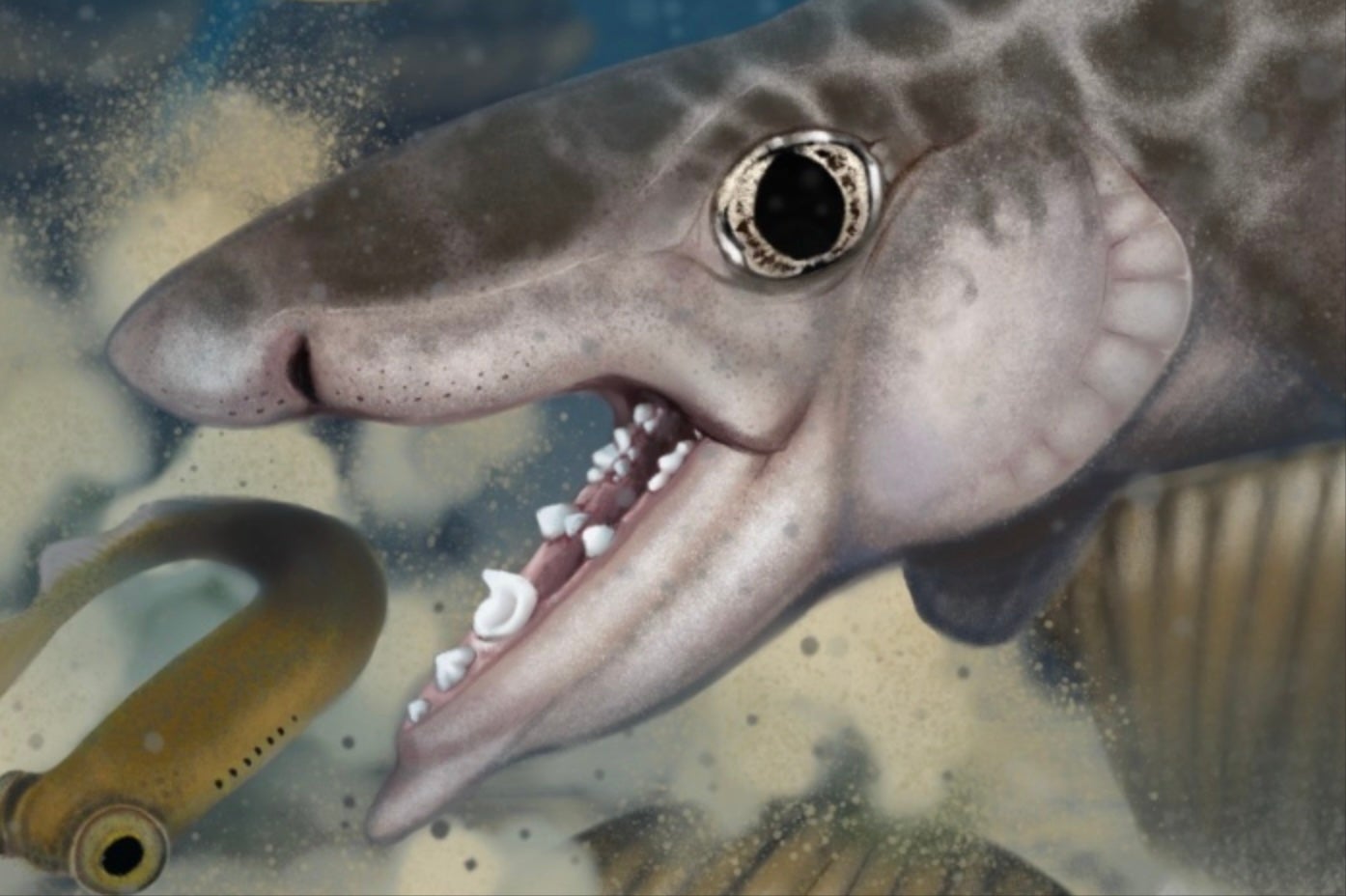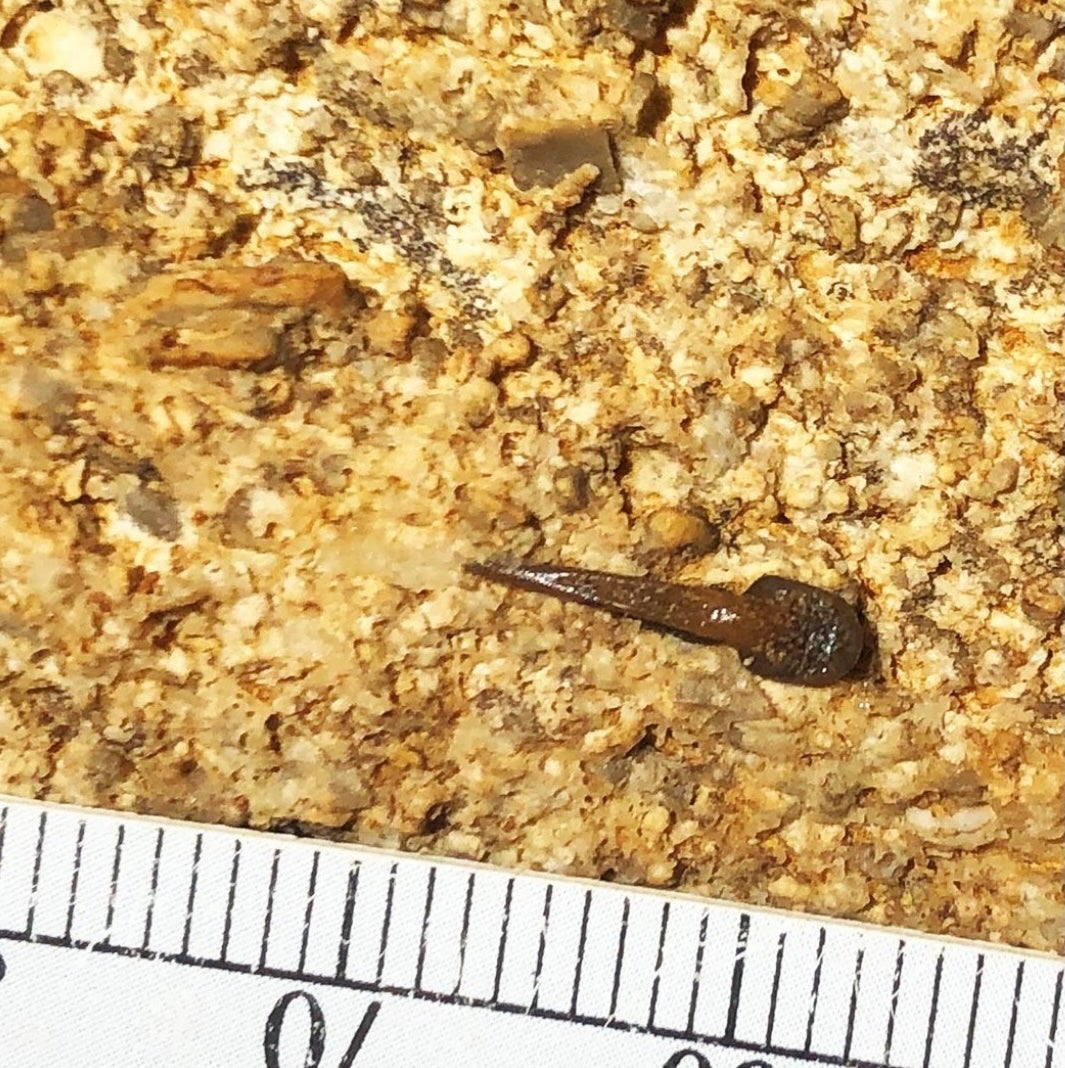Fossils of an ancient shark species have been discovered in a Kentucky cave, officials announced during Shark Week.
The Discovery Channel isn’t the only one educating shark lovers this week. Mammoth Cave National Park recently announced the discovery of an ancient shark species with unique teeth.
The ancient shark species, known as Macadens olsoni, “is notable for its unique tooth whorl, a curved row of teeth designed for crushing small sea creatures,” Mammoth Cave said in a press release issued Thursday.

The shark species likely grew to less than a foot long and probably ate mollusks and worms, according to the park.
The fossils were found in the Ste. Genevieve Formation, which dates back to around 340 million years ago, when Mammoth Cave was submerged in a warm, shallow sea.
“This discovery is a remarkable addition to our understanding of ancient marine life and underscores the importance of preserving and studying our natural history,” Mammoth Cave Superintendent Barclay Trimble said.
The shark species was named after Mammoth Cave and Rickard Olson, a retired park scientist, “who played a crucial role in documenting shark fossils in the park as part of a recent Paleontological Resource Inventory”, according to the park.

“This finding not only enhances our knowledge of ancient marine ecosystems but also emphasizes the critical role of paleontological research in our national parks,” Trimble said.
He added: “Every discovery connects the past with the present and offers invaluable educational opportunities for students and the public.”
At least 70 species of ancient fish from more than 25 caves and cave passages have been identified at Mammoth Cave, including more than 40 species of sharks and relatives.





